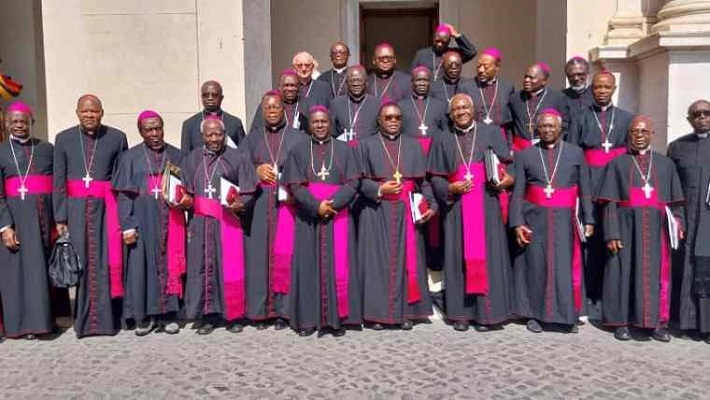By Arnold Neliba
MAROUA, JANUARY 16, 2024 (CISA)-Catholic Bishops in Cameroon meeting in Maroua for their 47th Annual Seminar and first plenary of 2024 have condemned the Boko Haram sect for the instability in the country’s far North regions.
In a statement signed by the Secretary General of the National Episcopal Conference of Cameroon (NECC), Msgr. Jervis Kebei Kewi, the bishops expressed “deep compassion” for the victims.
“The bishops denounce the horrendous acts perpetrated by the Boko Haram sect in the Far North Region and they express deep compassion for the victims. They also deplore all forms of violence in the country, especially the atrocities committed in the Northwest and Southwest regions,” the statement reads.
Armed conflict has continued to roil the country’s northern and central regions, where armed groups are active and government forces have been accused of committing abuses. In December 2023, Nigerian President Bola Tinubu ordered an investigation after a military drone strike killed 85 civilians gathered for a religious celebration.
As the region continues to experience religious and ethnic tensions the bishops have expressed their constant paternal solicitude and continual prayers.
According to the World Food Program (WFP), Cameroon has significantly been affected by three complex crises: armed conflict between non-state armed groups (NSAGs) and state security forces in the Northwest and the Southwest Regions; NSAGs insurgency and climate-related disasters in the Far North Region; and an influx of Central African Republic refugees in the East, Adamawa, and North Regions, which continues to cause a rising population of those stricken by poverty.
“The bishops are particularly concerned by the growing and yawning poverty among the population. They appeal for greater justice, solidarity, hard work and continued trust in God,” the statement reads.
WFP estimates over 55% of Cameroonians live in poverty, which affects several aspects of their lives – from health to education, living conditions and work among others while 37.7% of people are severely impoverished. The incidence of poverty is particularly high in rural parts of the northernmost and eastern regions, where structural underdevelopment and recurring climatic shocks, including floods and prolonged dry spells, limit people’s ability to thrive.
The choice of the venue for the bishops’ annual plenary was influenced by the Golden Jubilee celebrations of the Catholic Diocese of Maroua-Mokolo. Under the invitation of the local ordinary Bruno Ateba Edo, the bishops joined the diocese in closing the jubilee celebrations.

